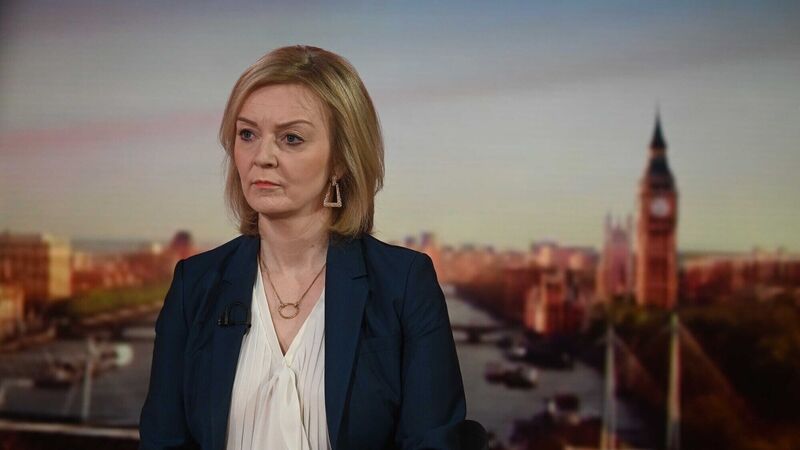EU threatens to retaliate if Britain overhauls Northern Ireland Protocol

Foreign Secretary Liz Truss (Jeff Overs/PA)
The EU has threatened to retaliate with “all measures at its disposal” if Britain proceeds with controversial plans to rip up parts of the Northern Ireland Protocol.
The British foreign secretary has set out her intention to bring forward legislation within weeks, overwriting parts of the post-Brexit deal, freeing goods destined to stay within the UK from EU-level checks.










